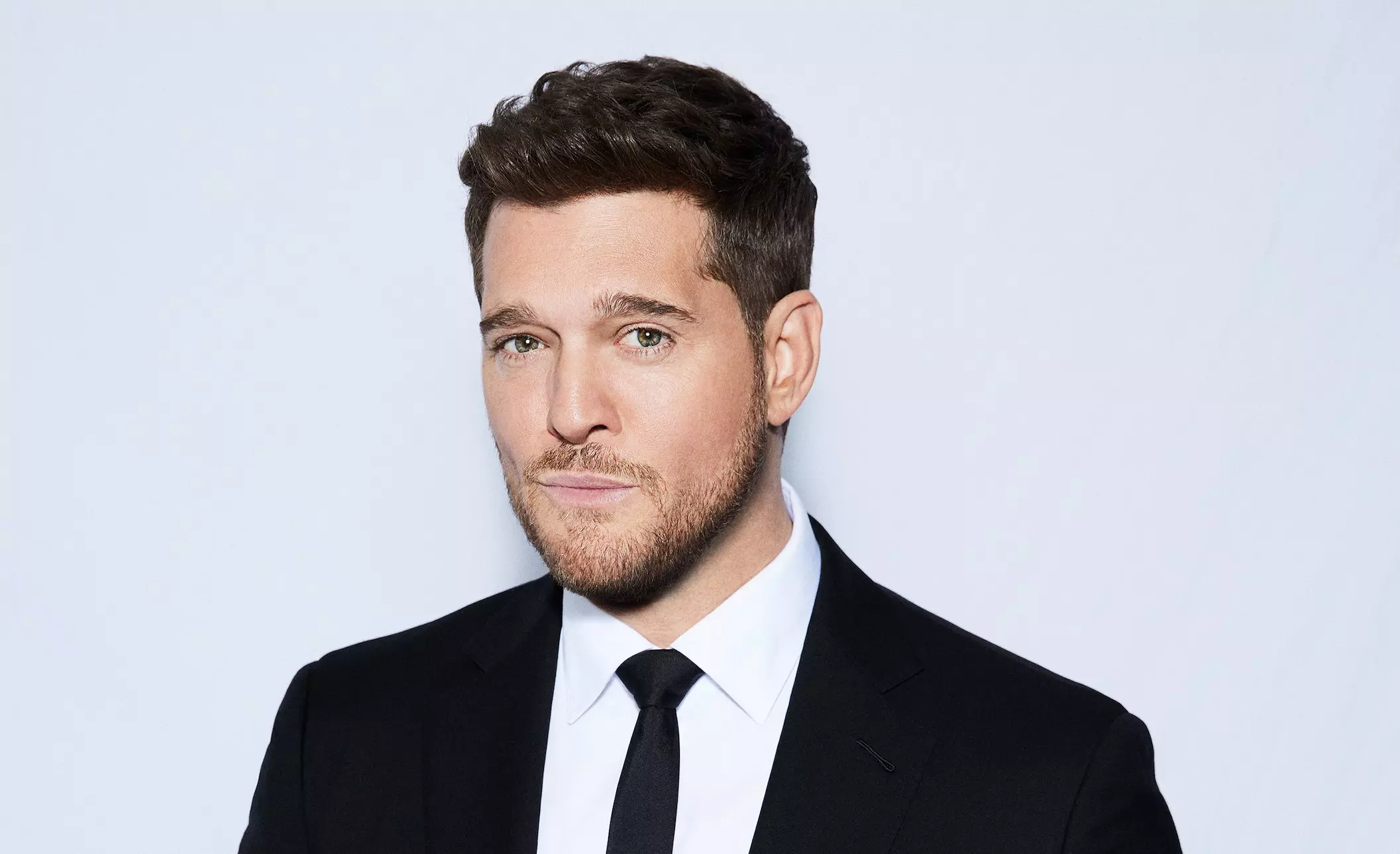Photo: Aaron Marsh
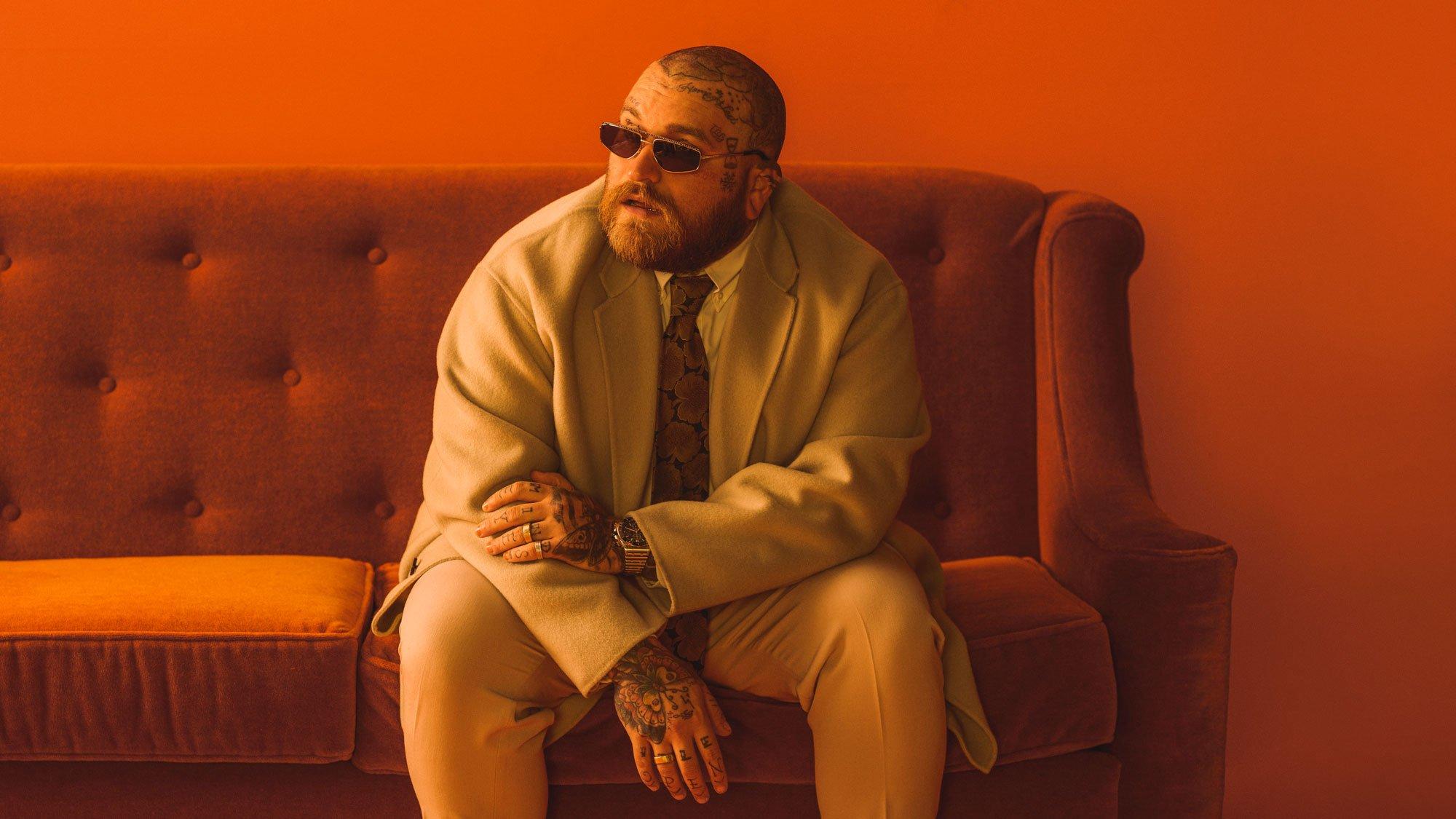
interview
Teddy Swims Is Letting Himself Be Brutally Honest On 'I've Tried Everything But Therapy'
As the world continues to discover the magnitude of Teddy Swims' soulful voice, he realized the power of opening up and letting go with his debut album, 'I've Tried Everything But Therapy.'
Four years into his career, Teddy Swims made a promise to himself to be more honest. With that in mind, he decided to be unflinchingly real with his debut album title: I've Tried Everything But Therapy.
While the title may be true for now, Swims is incredibly vulnerable. Across 10 tracks, he divulges the raw emotions of heartbreak, from reeling over what could've been in opener "Some Things I'll Never Know" to leaning into new love — while still in repair — on closer "Evergreen."
"It's the most honest I've ever let myself be," Swims, born Jaten Dimsdale, says of the album. "I'm proud of it, and I'm proud of myself. And it's a f—ing relief to just get it off my shoulders."
For someone who bares his soul in his music, both lyrically and vocally, it's rather surprising to think that he wouldn't be the type for therapy. But now that the album is out, his next step is seeking professional help — another promise he made to himself upon choosing the candid title.
In the meantime, Swims is already seeing the impact of being more and more open in his music. "Lose Control," the album's lead single, has earned Swims his first entry on the Billboard Hot 100 and first solo radio hit (in 2022, his Meghan Trainor collab "Bad For Me" reached No. 15 on Billboard's Adult Pop Airplay chart). But perhaps more notably, his powerful vocal runs on the song's dynamic chorus are stopping listeners in their tracks. As one YouTube commenter put it, "Man has a voice that speaks to the core of your soul."
Just before the album's arrival, Swims talked with GRAMMY.com about how I've Tried Everything But Therapy has helped him understand the impact of wearing his insecurities on his sleeve — and how his bewitchingly soulful voice ties it all together.
How does this album feel different from what you've put out before this, whether it's lyrically or sonically, or even how you feel mentally based around the process?
I feel like this is maturity. I can listen to these songs and I feel proud of them.
Everybody kinda doesn't like their own voice, you know? But I feel like I belong on those songs, and nobody could say what I needed to say the way I could say it. I feel like I'm saying something that I need to say and get off my chest in an entirely different way than I ever have.
I'm kind of an emotional toddler. I'm getting more of a grasp on what I want to say and how to say it, how to talk about my feelings more. I feel like the more I do it, the longer I do it, the more honest I become, the more I get out of the way of things. I'm learning to get out of the way and let the creative flow just be what it is now.
Going into writing this album, like, what were you going through? And did you have a goal in mind about what you wanted the album to be?
I really didn't know at the time. In the last four years, I've written maybe four or five hundred songs. I didn't write it knowing that it was an album, or write it knowing that this was going to be the album; but more so, when it started coming together, it just felt like things fell into place.
I realized that I've been circling around the same feelings and emotions for a very long time. It's always about — I was in a very toxic relationship, and I have been a lot in my life. This is me kind of learning that I can be loved, and that I am beautiful, and I deserve love. That's kind of what the struggle is and always has been.
The album title is interesting to me, because so many artists compare songwriting to therapy. But has songwriting always felt like therapy for you?
Songwriting can be therapeutic if you have a feeling that you need to get out, and you write that feeling down, and you get it out. But what I tend to do a lot in my life, I'll write it down into a song, and then I'll write it into another song from a different perspective. And I'll write it down 100 different ways, in 100 different perspectives, to the point that it ends up that that small problem has now turned into the biggest problem in my life, because I've thought about so many different ways.
Instead of being more therapeutic, [songwriting has] been more of a way of highlighting what I'm going through, sometimes way too much.
The title itself was kind of a promise to myself that I would go to therapy when the album comes out. I think it's something that everyone can benefit from, especially me. But there's still something about me — maybe it's a generational mindset, like, I'm not crazy, I don't need that, or maybe there's answers to questions I don't really want to ask that I'm gonna get.
I like my coping mechanisms. I like how I am and who I am when I do cope. So there's a part of me that's afraid that I'll have to change.
But I made a promise to myself, put a deadline on myself where I'll go and I'll seek help, and I'll try. It's also me being honest and open about that, to you and to everyone, that I'm like, "I need help, that's okay." I'm gonna ask for help, and that's a liberating and equally terrifying thing.
The nice thing is, there has been a lot more public acceptance of mental health in recent years. How have you felt that change since you started releasing music, and how has it impacted your songwriting?
I think what's so great about our industry these days is that I'm not held to the same standard as, like, Stevie Wonder or Michael Jackson, where I have to be such a star, and you don't know anything about me. These days, as an artist, I get to be absolutely insecure and absolutely terrified, and it's what makes my artistry beautiful. And people that feel the way I feel can look at me and say, "That guy's so insecure, and he's so scared. But he's doing it, and we want him to win."
I don't want to swallow my insecurities. I don't have to wait until I feel like I'm worthy of love to put myself out there. Every bit of insecurity, and everything that's going on in my life, I'm allowed to just wear it and put it on for everybody to see. That has helped me in more ways than me trying to be anything I'm not.
You've said that for a long time, you worried about giving too much of yourself in your music, but seeing people connect to the music has made you realize it's actually making a difference. When did you start realizing that?
I am very lucky — every show we do, I have a meet and greet where I can talk to 100 people, and they tell me things that have changed their life, ways that I've affected them, and the ways that I've touched their lives.
I also want them to know that I'm just that fat kid from Rockdale County, Georgia, and still feels like that. And they make me be able to be honest and have an outlet to turn my trauma into something positive in me.
I feel like I learn it more and more every day that I am in a safe space, and I've created a safe space for people, and I become safer in that all the time. And I'm becoming more honest with myself, with them, in the safe space. It's just sacred, you know?
Was there a song of yours that kind of opened that up for you, because of the way that people connected to it?
I've had a few like that, but "Simple Things" that I released on one of my EPs is still a song I sing all the time. I thought the verses were only specific to my life and what I was going through — that was the first time I was honest, and I wrote from only what I was going through specifically to my life, and that connected and did more for people than anything I did [previously].
You've said that you're insecure, but would you consider yourself an introvert?
I think the more that I do this, the more I become one. I used to be the biggest extrovert in the world, but the more I do this job, the more I have to be social, I feel myself becoming more of an introvert.
Well, I brought that up because so many artists consider themselves introverts, when you are pouring your heart out in music that is then heard by thousands, if not millions, of people. Has that dichotomy ever crossed your mind?
Yeah, but that's kind of why I think I've become more introverted, because I gotta figure out what's still mine or if there should be anything that I should hold to myself. That is the question: What is still for me, or should there still be anything just for me?
That's so interesting to think about — I've never really thought about the battle that an artist can have when they share so much. Because it's like, at that point, you're so exposed, how are you even supposed to function as a private person in any regard?
Yeah. You figure it out, you let me know. [Laughs.]
It's cool that you're feeling so proud of this album, though, because I'd say that means that you haven't gone too far.
It's the most honest I've ever let myself be. And I don't feel exposed — I just feel like I said what I needed to say.
I've heard that I've Tried Everything But Therapy is coming in multiple parts and this is just part one. Is that true?
Yeah, we're planning on part two, but I don't know what that looks like yet. But I want to put out more music. And I think I want to come from a different place of what I've learned from how I've healed. I just don't feel like this story's done yet.
But you said you're going to start therapy after this album releases — so you're going to release a part two of I've Tried Everything But Therapy after you've been in therapy?
Yeah, I guess that doesn't make sense. But it will!
It would be kind of interesting to have part two be the response to therapy after you have done it.
Yeah, exactly. That's the vibe. Maybe we just go straight to part three and skip part two altogether.
Before you even released part one, people were going crazy over "Lose Control" because of how soulful you sound on it. When did you realize you had such a captivating voice?
It wasn't really a realization — I was bad for a long time. But I love this, and I wanted this, so I worked hard to become good at it. I wanted to be the best I could at it, because using my voice means everything to me, and I want to know how to do everything I can with it.
Well, you're doing something right, because people are exclaiming about it left and right. I saw a comment on one of your Instagram posts that said, "I just threw my shoe across my damn office, you better sing!" Do you feel the power of your own music?
I know, technically and dynamically, I am a good singer. When I listen to myself, I can't say I can't sing, because it's all there. Any singer or vocal coach could tell "That kid knows what he's doing. He can sing his ass off."
But also, there's part of me that still doesn't like my voice, too, just like anyone else. And I think that might be why I became so good at it. Because I want to hear it and be like, "Well, you can't tell yourself you ain't good, 'cause that was f—ing — that takes skill." I've learned enough to know that I can't tell myself I'm bad. [Laughs.]
And I have to say, I've been impressed with all of the people you've posted singing their own versions of "Lose Control."
People can sing! And people have been writing verses to it too. The love on it has been so rewarding.
I feel very justified [that the music] is connecting. I feel like it's already helping. I feel very humbled, appreciated and loved.
On 'Super Over,’ Leah Kate Offers Advice On Cutting Off Toxic Relationships
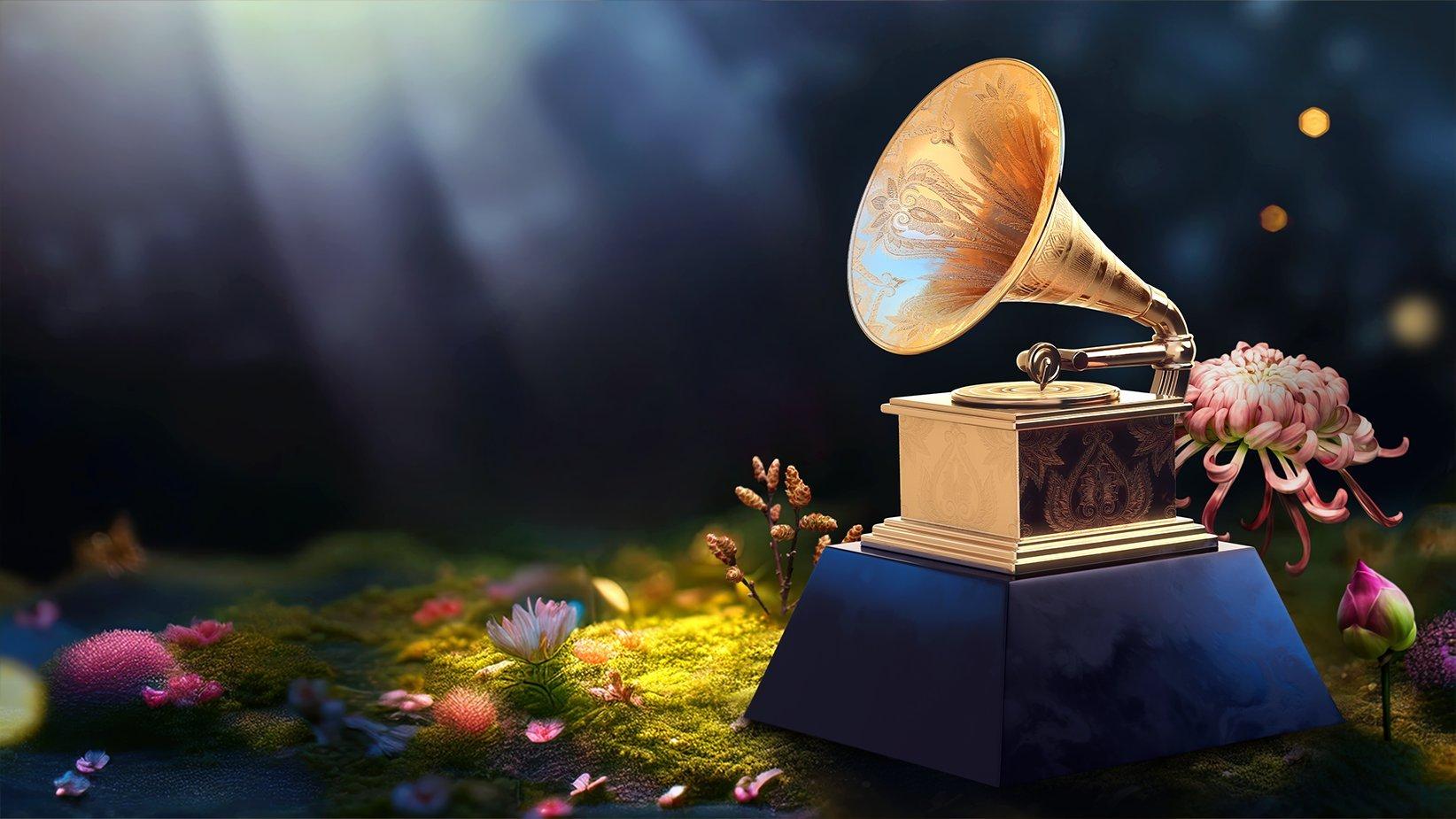
Graphic courtesy of the Recording Academy
list
2025 GRAMMY Nominations: See Shaboozey, Anitta, Teddy Swims & More Artists' Reactions
The 2025 GRAMMY nominations have been announced! Here’s how nominees from RAYE to Troye Sivan reacted on social media.
This morning, 2025 GRAMMY nominations were announced, sparking a wave of excitement for music fans everywhere!
Right after the big announcement, nominated artists lit up social media with posts of joy and gratitude. The timeline quickly filled with celebration, from first-time Best New Artist nominees Shaboozey and Teddy Swims to shoutouts from hit-makers Alissia, Green Day, and St. Vincent.
Dive into the social media celebration posts, and catch up on the full list of nominations on the road to the 2025 GRAMMYs on Sunday, Feb. 2, 2025 at Crypto.com Arena in Los Angeles, broadcasting live on the CBS Television Network and streaming live and on demand on Paramount+.
Best New Artist nominees Shaboozey, Doechii, Sabrina Carpenter, Teddy Swims, and RAYE all shared their heartfelt sentiment after being nominated:
Best Global Music nominee Matt B, nominated with featured performers Royal Philharmonic Orchestra for the album ALKEBULAN II, jumped for joy at hearing news of the nomination.
Brazilian artist Anitta, nominated for Best Latin Pop Album for Funk Generation, felt inspired to get up and groove upon learning of her second career GRAMMY nomination.
Hawaiian artist Kalani Pe'a, nominated for Best Regional Roots Music Album for Kuini was moved to unbridled tears from deep gratitude:
Several more artists took to social to share more reactions to their nominations, including Scott Hoying, Muni Long, Troye Sivan, Cimafunk, Producer Of The Year, Non-Classical nominee Alissia and more:
More 2025 GRAMMYs News
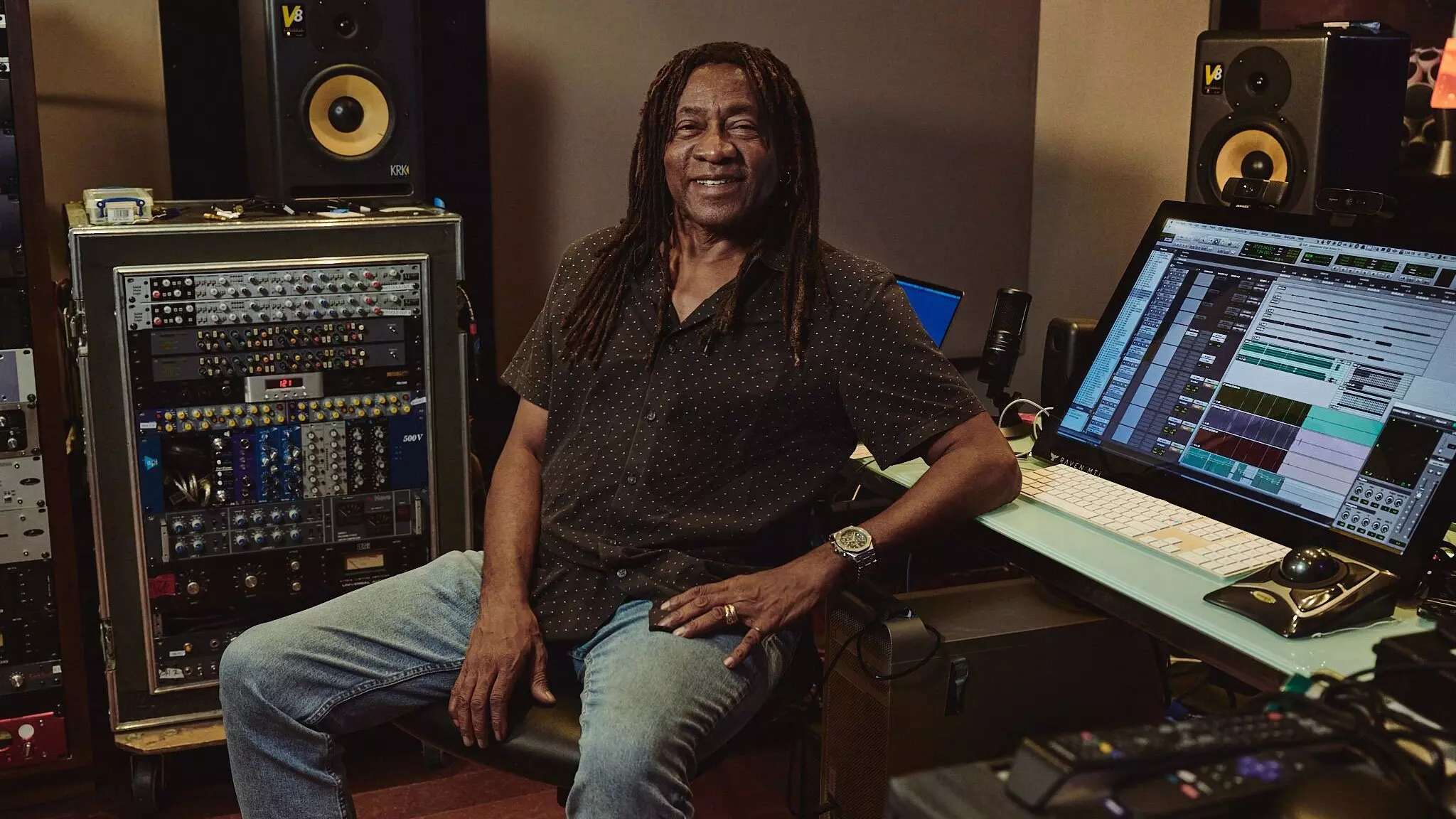
The Recording Academy Producers & Engineers Wing To Honor Jimmy Douglass During 2025 GRAMMY Week Celebration

2025 GRAMMY Nominations: See Shaboozey, Anitta, Teddy Swims & More Artists' Reactions
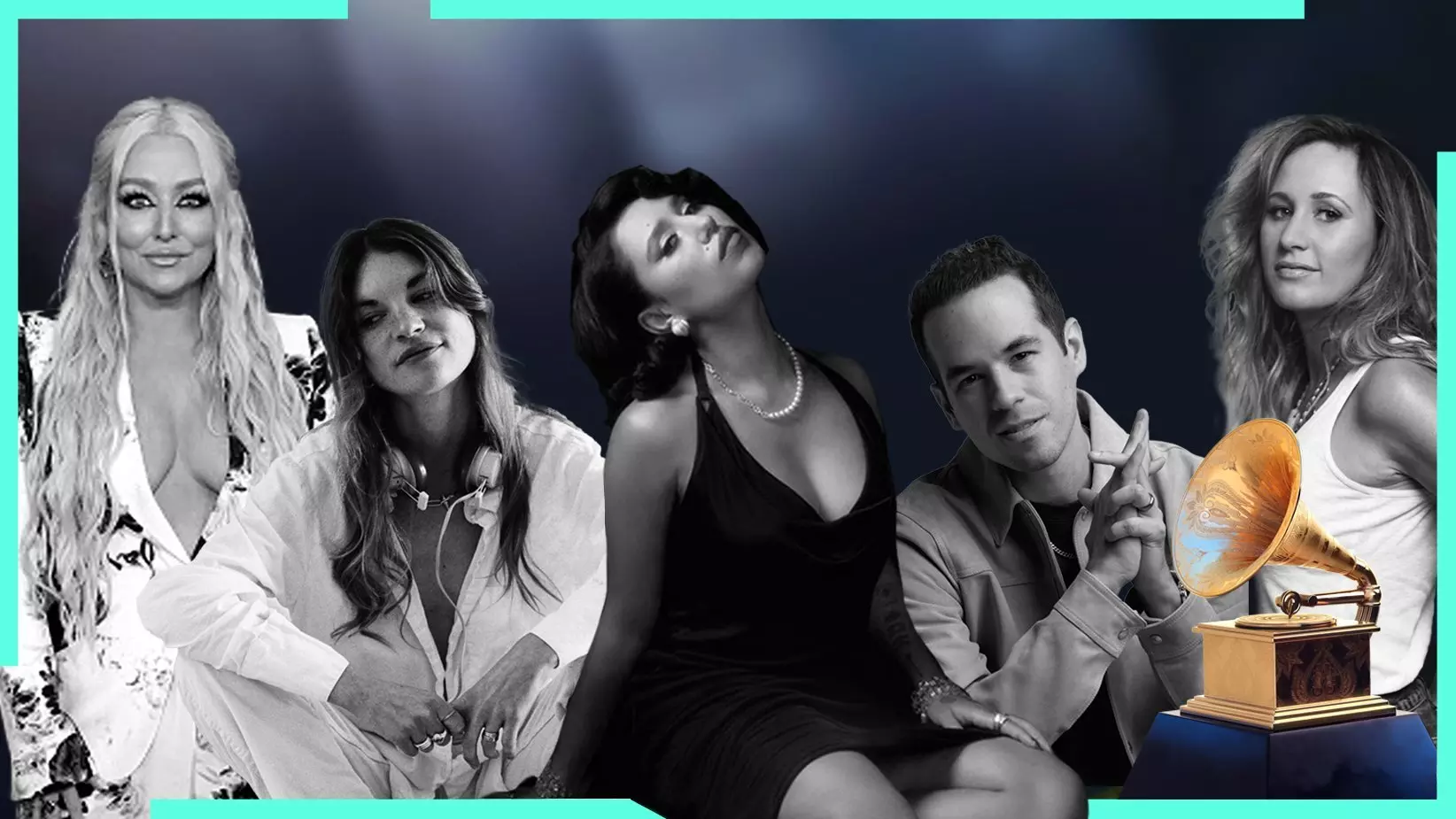
2025 GRAMMYs Nominations: Songwriter Of The Year Nominees
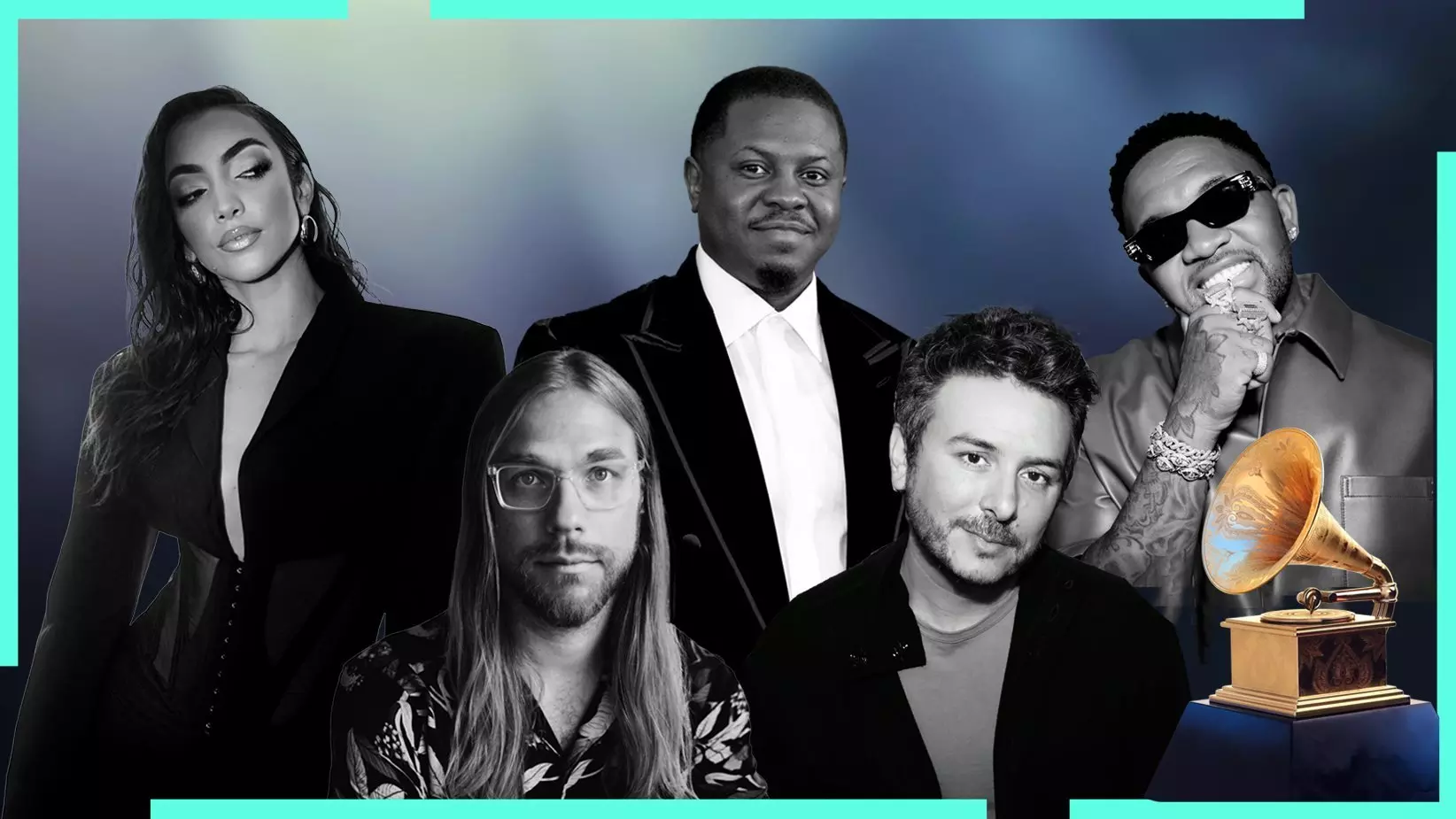
2025 GRAMMYs Nominations: Producer Of The Year Nominees

Watch The 2025 GRAMMY Nominations Wrap-Up Show
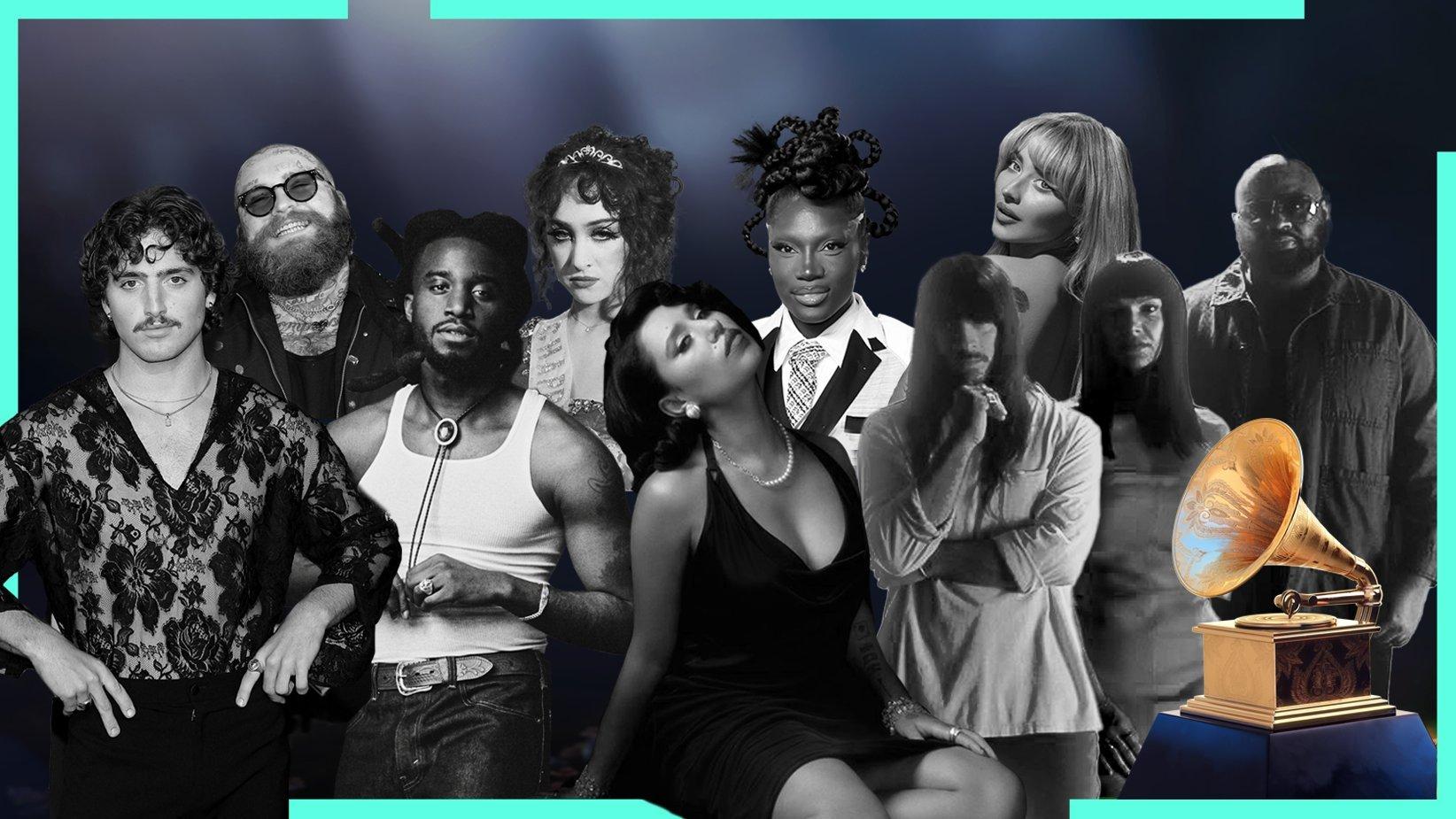
list
2025 GRAMMYs Nominations: Best New Artist Nominees
Ahead of Music's Biggest Night on Feb. 2, celebrate nominated artists in the Best New Artist Category: Benson Boone, Sabrina Carpenter, Doechii, Khruangbin, RAYE, Chappell Roan, Shaboozey, and Teddy Swims.
Every year, the GRAMMYs' Best New Artist category acknowledges rising stars who are shaping the future of music through their own artistry.
Little does it matter if they have just a few singles or 10 studio albums under their belts. The Best New Artist Category is all about highlighting how an act pushes creative boundaries and challenges a saturated industry with outstanding — and sometimes surprising — music.
The Best New Artist nominees for the 2025 GRAMMYs are Benson Boone, Sabrina Carpenter, Doechii, Khruangbin, RAYE, Chappell Roan, Shaboozey, and Teddy Swims. Though only one of them will claim the golden gramophone on Feb. 2, 2025, each of these artists are forging bold, inspiring careers ahead. With this well-deserved nomination, the Recording Academy recognizes their efforts and celebrates their success.
Check out the nominees below and read the full 2025 GRAMMYs nominations list ahead of Music's Biggest Night on Sunday, Feb. 2, 2025.
Benson Boone
"I feel like things have taken off for me like a firework tied to a rollerblade, all very quickly," Benson Boone told GRAMMY.com upon releasing his debut LP, aptly titled Fireworks & Rollerblades, in April. While it may be a metaphor for his career in 2024, Boone's swift ascent is the result of a promising last few years.
Hailing from Monroe, Washington, he first caught the public's attention during a short stint on season 19 of "American Idol" in 2021. As the 22-year-old built momentum via TikTok, Imagine Dragons' Dan Reynolds also saw his potential, and promptly signed Benson to his label, Night Street Records, in partnership with Warner Records.
Boone's first hit single, 2021's "Ghost Town," foreshadowed his talent for vulnerable songwriting and catchy piano lines, followed by the release of two EPs in 2022 and 2023. However, his bonafide breakthrough came only in January of this year, with the soaring "Beautiful Things" — a global smash that peaked at No. 2 on the Billboard Hot 100, and surpassed 1.5 billion streams on Spotify as of press time. Second single "Slow It Down" went similarly viral in March, followed by a sold-out global tour and opening for Taylor Swift's Eras Tour in London.
Hence, the release of Fireworks & Rollerblades only cemented what many already knew: Boone is one 2024's definite stars.
Sabrina Carpenter
"I never had the plan B, and it wasn't even a thought in my mind that it wouldn't work out," Sabrina Carpenter told Rolling Stone back in June. "I just always knew it was about not if it would happen but when it would happen."
The 25-year-old singer was right. 2024 was the year that took Carpenter to the superstardom stratosphere, with three chart-smashing, defining hits — "Espresso," "Please, Please, Please," and "Taste" — a dazzling debut at Coachella, and a tenure opening Taylor Swift's Eras Tour in Latin America, Australia and Asia.
But Carpenter's success is hard-earned. A former Disney star, she spent the last decade relentlessly developing her singing and songwriting style. It wasn't until her fifth studio album, 2022's emails i can't send, that she took full creative control over her work and, in turn, found her own artistry; with standout singles "Nonsense" and "Feather," she displayed the witty lyricism and catchy hooks that would become her signature.
When Carpenter's sixth LP, Short n' Sweet, arrived in August, she solidified her status as pop's newest queen. Co-produced by pop savant Jack Antonoff, the album bursts with confidence and charisma, channeling her sassy persona and velvety vocals into timeless earworms.
The album went on to become Carpenter's first No. 1 project in the U.S., and also earned her first Platinum certification. And now, she adds her first GRAMMY nominations to her 2024 feats, and seven at that — hinting that her pop reign will be anything but short n' sweet.
Read more: How Sabrina Carpenter Became A Pop Queen: Tracing Her Journey To 'Short N' Sweet'
Doechii
"Overly cocky, I'm hyper-ambitious/ Me, me, me, me, bitch I'm narcin-assistic/ I am a Black girl who beat the statistics," says Doechii on her first viral single, 2020's "Yucky Blucky Fruitcake." It's a banging introduction to the rapper, who has since signed with Top Dawg Entertainment (home to Isaiah Rashad, SZA and more), released two EPs and three mixtapes, collaborated with the likes of Kodak Black and Katy Perry, supported Doja Cat on tour, and has now earned her first GRAMMY nominations.
Born Jaylah Hickmon in Tampa, Florida, Doechii was a theater kid who wrote poetry before adding beats to her bars. Her music is confessional, irreverent and unapologetic, sourcing her experiences as a Black woman and transmuting them into provocative, empowering anthems — see 2022's "Crazy," whose music video was banned from trending on YouTube due to its violence and nudity content.
But it didn't faze her. The scenes were not for shock value, but to express the hardships that women go through, and to challenge the sexualized gaze over them. After all, as she said in a since-deleted Instagram post, "'Crazy' is about uncontained power, creativity and confidence. People call you crazy when they fear you or they don't understand you. So when I use it in the song, I'm reflecting that energy back on them to show them themselves."
Doechii has yet to release a debut studio album, but her latest mixtape, August's Alligator Bites Never Heal, is a strong display of her brilliant storytelling and quirky uniqueness. Coupled with the success of her previous releases, Alligator Bites's critical acclaim suggests that the "Swamp Princess" is bound to fly even higher.
Read more: 5 Emerging Artists Pushing Electronic Music Forward: Moore Kismet, TSHA, Doechii & Others
Khruangbin
Khruangbin means airplane in Thai, and there couldn't be a better word to describe the Texan trio. From Middle Eastern scales to Peruvian cumbia, the intercontinental influences within their sound transport listeners around the world.
Formed by bassist Laura Lee Ochoa, guitarist Mark Speer, and drummer Donald "DJ" Johnson Jr., they first took inspiration in Thai funk from the '60s and '70s, and in 2015 released their debut LP, The Universe Smiles Upon You. Now four albums in, the band has crafted a lush soundscape that can be both nostalgic and avant-garde, familiar and strange. They've entranced fans from Barack Obama to Jay-Z, played at festivals like Coachella and sold out several tours (including two nights at New York's Radio City Music Hall), and collaborated with icons such as Paul McCartney.
For the past four years, Khruangbin focused on their aggregating nature: they put out two EPs with soul singer Leon Bridges (2020's Texas Sun and 2022's Texas Moon), 2022's Ali with Vieux Farka Touré, and a series of 2023 live recordings in partnership with Toro y Moi, Nubya Garcia, and Men I Trust. It was time the trio turned down outside noise, and focused on their own synergy. Khruangbin's latest album, A La Sala ("to the room," in Spanish), arrived in April as a core example of their essence — for the first time, they had no additional collaborators, resulting in a rebirth of their original magic.
With this return to their roots and their rising popularity, a GRAMMY nomination for Best New Artist stands as an invite for even more people to dive into their ethereal, exceptional work.
Read more: 5 Songs To Get Into Khruangbin Ahead Of Their New Album 'A La Sala'
RAYE
For seven years, South London singer/songwriter RAYE was kept in the talent basement of Polydor Records, unable to release her debut LP. During that time, she co-penned songs for acts like Beyoncé and Rihanna, released five EPs and a handful of singles, including collaborations with David Guetta and Martin Solveig, but she knew it wasn't half of what she had to offer.
"Imagine this pain. I have been signed to a major label since 2014...and I have had albums on albums of music sat in folders collecting dust," she shared on Twitter back in 2021, reflecting on her situation. "Songs I am now giving away to A-list artists because I am still awaiting confirmation that I am good enough to release an album."
Shortly after that confession, RAYE (whose birth name is Rachel Keen) parted ways with Polydor and became an independent artist. Slowly, she pieced together the riveting songs that formed her hard-fought 2023 debut, My 21st Century Blues. Her resonant voice and raw lyricism earned raving reviews, and the album's lead single, "Escapism" took off — going viral on TikTok, topping the UK Singles Chart, and becoming her first Billboard Hot 100 entry.
It was a pivotal moment for the now 27-year-old, proving that her intuition and belief in herself paid off. Since then, RAYE has continued to flourish as an artist in her own right, supporting world tours by SZA, Kali Uchis, and Lewis Capaldi, opening for Taylor Swift's Eras Tour, and performing at Coachella and Lollapalooza. In March 2024, she made history at the BRIT Awards by securing six trophies — the most for any artist in a single year.
RAYE's latest single, June's "Genesis.," is a seven-minute epic that she described in a statement as "a prayer and a plea and a cry for help." Its three-act structure and straightforward, relatable lyrics suggest a newfound confidence — and with RAYE's first GRAMMY nomination for Best New Artist in tow, the sky's the limit for her next chapter.
Read more: Watch RAYE Open Up About Her Prized Songwriting Notebook | It Goes To 11
Chappell Roan
Credited by many for infusing pop music with a much-needed dose of fun, Missouri-born singer Chappell Roan laced 2024 with her enthusiasm, flair and unabashed sexuality. However, the path to this moment wasn't easy — and is reflected in her 2023 debut album's title, The Rise and Fall of a Midwest Princess.
Roan first signed with Atlantic Records in 2015 at just 17, but the label didn't find her profitable enough; by 2020, she was dropped from their roster. Coupled with the breakup of a four-year relationship and a brief return to her parents' house, Roan found herself in a slump. Yet, she pulled herself up, moved to Los Angeles, and finally started working independently on music that she was proud of.
Born Kayleigh Amstutz, the singer describes Chappell Roan as a "larger-than-life, drag queen version of myself," who allows her to embrace her queer identity and sexuality, as well as dealing with the hardships of being a woman. Her glittery, campy world is DIY by design, all-inclusive and genuine, prompting a devoted cult fan base that was eager to spread her truth to the mainstream.
It was only a matter of time until that happened. She signed with Island and Amusement Records in early 2023 to release the effervescent Midwest Princess, but refused to compromise her artistic vision or creative control — and her commitment to authenticity resonated.
After starting 2024 by opening for Olivia Rodrigo on the sold-out GUTS World Tour, Roan went on to draw mind-blowing (if not record-breaking) crowds at Coachella, Governors Ball, Lollapalooza, and Austin City Limits festivals thanks to her rapidly increasing allure. Roan's follow-up single, "Good Luck, Babe!," bolstered her to even greater heights (including 2025 GRAMMY nods for Record Of The Year, Song Of The Year and Best Pop Solo Performance) and helped Midwest Princess reach its biggest sales week a full year after its release — ultimately securing her place as one of pop's most promising stars.
Read more: Chappell Roan's Big Year: The 'Midwest Princess' Examines How She Became A Pop "Feminomenon"
Shaboozey
"They say it takes 10 years to have an overnight success, and it's true," Shaboozey told GRAMMY.com in May. The 29-year-old Nigerian-American born Collins Chibueze knows it firsthand: his first single, "Jeff Gordon," came out in 2014, but he's only now seeing the fruits of his hard work a full decade later.
It all started in March, with Beyoncé's trailblazing COWBOY CARTER, where Shaboozey's two guest features — "SPAGHETTII" and "SWEET HONEY BUCKIIN" — left listeners craving for more. Fortunately, there was plenty to discover. Since "Jeff Gordon," Shaboozey signed to Republic Records and released his 2018 debut, Lady Wrangler, followed by 2022's Cowboys Live Forever, Outlaws Never Die, via EMPIRE. (According to Spotify, Shaboozey's catalog streams increased by 1,350 percent after the release of COWBOY CARTER.)
Just six weeks later, Shaboozey had another breakthrough moment. His single "A Bar Song (Tipsy)" dethroned Beyoncé's "TEXAS HOLD 'EM" for the No. 1 spot on Billboard's Hot Country chart. But that was far from where the song's success stopped. Along with topping charts around the world and helping Shaboozey become the first male Black artist to be No. 1 on Billboard's Hot Country Songs and Country Airplay charts simultaneously, "A Bar Song" has notched 16 weeks atop the Billboard Hot 100 as of press time — just one week away from breaking the record for the longest run this decade.
Though "A Bar Song" undoubtedly put Shaboozey on the map as an artist in his own right, his third album Where I've Been, Isn't Where I'm Going showed he's more than a smash hit. With his distinctive mix of country, Americana, and hip-hop, as well as lyrics that lay bare a journey through heartbreak and depression, he snagged a No. 5 debut on the Billboard 200 album chart. Now, with a GRAMMY nomination for Best New Artist, Shaboozey is poised to reach even wider audiences.
Read more: Shaboozey On His New Album, Beyoncé & Why He'll Never Be A "Stereotypical" Artist
Teddy Swims
"I don't want to swallow my insecurities. I don't have to wait until I feel like I'm worthy of love to put myself out there," Teddy Swims told GRAMMY.com upon the release of his 2023 debut, I've Tried Everything But Therapy (Part 1). It's rare to find a man so emotionally open, but that's one of the factors that makes the Georgia native so special — that, and his arrestingly powerful, soulful voice.
After starting out on YouTube in 2019, Swims (born Jaten Dimsdale) signed with Warner Records and put out four EPs, gradually emerging as one of the most compelling vocalists of his generation. His true breakthrough came in June 2023 with the bellowing hit "Lose Control," which earned him a first entry on the Billboard Hot 100 and a swarm of new fans who were entranced by his music.
The track featured on I've Tried Everything but Therapy (Part 1), which expanded on the lyrical vulnerability and stirring sounds of "Lose Control" and spawned another pop hit with "The Door." Keeping his promise of a Part 2, Swims dropped a sneak peek with I've Tried Everything But Therapy (Part 1.5) in April, and just announced that Part 2 will arrive on Jan. 24, 2025.
Will Teddy Swims be celebrating a GRAMMY win just after celebrating his next album release? Tune into the 2025 GRAMMYs on Feb. 2 to find out!
Read more: Teddy Swims Is Letting Himself Be Brutally Honest On 'I've Tried Everything But Therapy'
The Latest Pop Music News & Releases
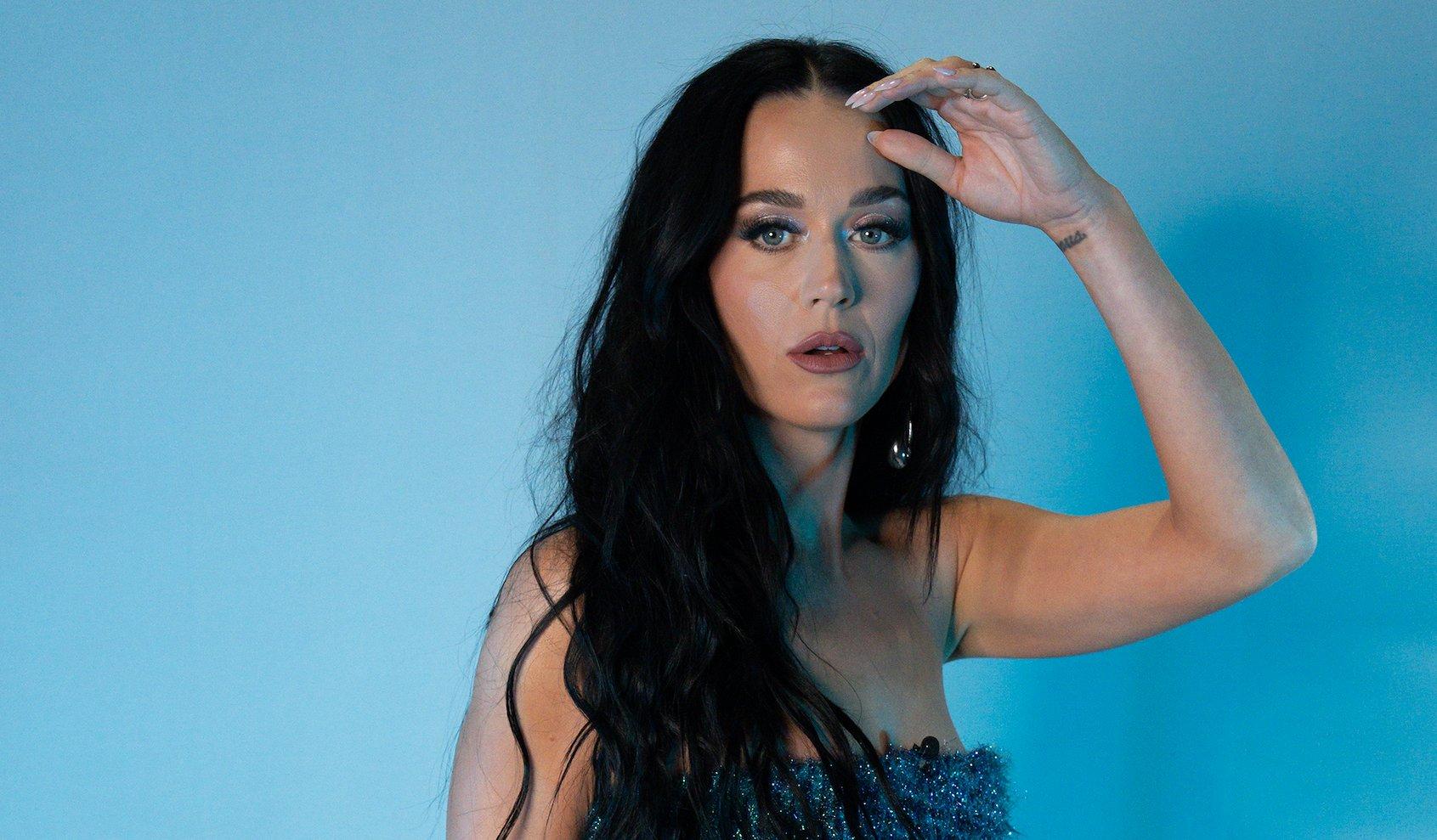
Photo: Eric McCandless/Disney via Getty Images
list
Katy Perry's Biggest Songs: Revisiting Her Most Iconic Hits In Honor Of New Album '143'
From "Teenage Dream" to "Firework," Katy Perry has delivered some of the most memorable pop anthems of her time. As the superstar releases her seventh studio album, jam out to 15 of her GRAMMY-nominated and chart-topping songs.
When Katy Perry announced her seventh studio album, 143, in July, a press release described the LP as "sexy, fearless return to form." While the first single from the project, "Woman's World," was panned by critics, its bold lyrics, punchy melody and outlandishly fun video are as Katy Perry as they come.
There's no denying that Perry is one of the most important artists to shape pop music in the 21st century. Her easygoing, sunny hits have soundtracked countless summers, and her vulnerable power ballads have affected millions. She's been nominated for 13 GRAMMY Awards, and is one of the best-selling artists of all time, even sharing company with Michael Jackson as the only two artists to ever land five No. 1 hits from a single album.
Just before 143's Sept. 20 arrival, Perry further proved her influence — and that her past hits hold up — with a stellar mashup performance at MTV's 2024 VMA Awards on Sept. 11. Even if her seventh studio set doesn't achieve the heights of Perry's earlier albums, she's crafted some of the most iconic pop songs of the 21st century, from "I Kissed a Girl" to "Roar."
To celebrate the beginning of a new era and the blazing legacy of Perry's artistry, GRAMMY.com looks back at the most defining songs in her dazzling career.
"I Kissed A Girl," 'One Of The Boys' (2008)
Perry's debut single was the song that changed her trajectory forever. "I Kissed a Girl" became a massive hit, reaching No. 1 on the Billboard Hot 100 chart for seven consecutive weeks, and earning Perry her first GRAMMY nomination for Best Female Pop Vocal Performance in 2009.
While the track has been widely criticized for its "queerbaiting" lyrics, Perry recognized them as problematic in a 2018 YouTube video for Glamour, and affirmed she would "probably make an edit" if given the chance to rewrite it. "We've really changed, conversationally, in the past 10 years," she said. "We've come a long way. Bisexuality wasn't as talked about back then, or any type of fluidity." Even if its lyrics haven't aged well, the propulsive electropop and instant catchiness of "I Kissed A Girl" introduced Perry as a pop force in the making.
"Hot N Cold," 'One Of The Boys' (2008)
Following the success of "I Kissed A Girl," Perry's follow-up single, "Hot N Cold," hinted that she wasn't a flash-in-the-pan artist. Co-produced by Dr. Luke and Benny Blanco — the duo behind both singles — "Hot N Cold" soared to No. 3 on the Hot 100, and also scored Perry her second GRAMMY nomination for Best Female Vocal Performance in 2010.
The upbeat, synth-filled hit is filled with sturdy synths and simple, yet witty lyricism about a loved one's fluctuating moods. "You're yes then you're no /You're in then you're out /You're up then you're down /You're wrong when it's right," she sings, unknowingly creating a relatable anthem for generations to come.
"Thinking of You," 'One Of The Boys' (2008)
The third single off One Of The Boys showcased a different facet to the splashy, sassy singer. In this stirring ballad, Perry — who wrote the lyrics by herself — pricks on old wounds as she pines for a former lover, despite being in a new relationship.
"You said move on, where do I go?/ I guess second best is all I will know," she sings in one of the most evocative compositions in her career. "Comparisons are easily done/ Once you've had a taste of perfection/ Like an apple hanging from a tree /I picked the ripest one, I still got the seed."
While "Thinking of You" did not achieve the same chart success as some of Perry's other early singles, it still stands as a testament to her powerful vocals and ability to turn universal experiences into utterly personal tracks.
"California Gurls," 'Teenage Dream' (2010)
This cheeky, carefree homage to California — where both Perry and featuring rapper Snoop Dogg were born — revels in the depiction of a "warm, wet n' wild" paradise, filled with girls so hot they will "melt your popsicle." "They're unforgettable," Perry sings, and she might have been onto something, as "California Gurls" was arguably the song of the summer in 2010.
A co-production of Dr. Luke, Benny Blanco and pop master Max Martin, it spearheaded one of the singer's most successful eras: her third album, Teenage Dream. The track dominated charts and radio stations across the globe, also earning a GRAMMY nomination for Best Pop Collaboration with Vocals — and a permanent place in our minds.
"Teenage Dream," 'Teenage Dream' (2010)
After delivering another smash with Teenage Dream's lead single, Perry did it again with its title track. The album's second single manages to bottle all the euphoria and trepidation of being a teenager into one masterful, ageless hit. Adolescents all over the world can listen to this song and feel contemplated, in the same way that elders might hear it and remember the rush of their first loves.
While the melody packs some of Dr. Luke, Blanco and Martin's arguably best synths and guitar riffs, it's the exhilarating "I'ma get your heart racing in my skin-tight jeans/ Be your teenage dream tonight" bridge that makes this track truly unforgettable. "Teenage Dream" granted Perry both her third No. 1 hit on the Hot 100 and her third GRAMMY nomination for Best Female Pop Vocal Performance, setting the stage for even more massive success that was to come.
"Firework," 'Teenage Dream' (2010)
"Do you ever feel like a plastic bag/ Drifting through the wind, wanting to start again?" Perry asks in the first line of her 2010 self-empowering anthem, "Firework." Although the question went on to become a meme due to its uncanny — yet oddly relatable — comparison, the track remains as one of her most successful efforts and a dynamic display of her grandiose vocals.
Inspired by a passage from Jack Kerouac's beatnik classic On the Road, "Firework" inspired listeners all over the world to "ignite the light and let it shine." Its inspiring message and belt-along hook helped "Firework" become Perry's fourth No.1 single on the Hot 100 and secure GRAMMY nominations for Record Of The Year and Best Pop Solo Performance.
"Last Friday Night (T.G.I.F.)" 'Teenage Dream' (2010)
After scoring yet another Hot 100 chart-topper with the freaky techno-pop "E.T." with Kanye West, Perry returned with her fifth single off Teenage Dream, "Last Friday Night (T.G.I.F.)." Like its four predecessors, the peppy track landed at No. 1 on the Hot 100 — making Perry the first (and, as of press time, only) female singer to topple five No.1 singles off the same album at Billboard's Hot 100 chart.
In yet another Dr. Luke and Max Martin co-production, Perry spiritedly retells a wild night drinking with friends. Dancing on tabletops? Check. Skinny-dipping in the dark? Check. Smelling like a mini bar? Check. As if playing the quintessential bingo of youth, she earns the jackpot and then some. However, despite the consequences (Towed car? Check!), her only goal is to "do it all again" next week. Oh, to be young and reckless…
"Wide Awake," 'Teenage Dream: The Complete Confection' (2012)
With the release of her 2012 biopic, Katy Perry: Part of Me, the Californian singer also put forward one of her most touching power ballads. "I wish I knew then what I know now/ Wouldn't dive in, wouldn't bow down/ Gravity hurts, you made it so sweet/ 'Til I woke up on the concrete," she sings of a disenchanting breakup.
But the overall message of "Wide Awake" is an uplifting one — vowing to see the truth with clear eyes and eventually feel "born again." The song takes after Perry's personal experiences at the time, following her divorce from English comedian Russell Brand. "Wide Awake" was added to the reissue album, Teenage Dream: The Complete Confection, alongside "Dressin' Up" and "Part of Me," and earned a 2013 GRAMMY nomination for Best Pop Solo Performance.
"Roar," 'Prism' (2013)
"People talk about bullying, but you can be your own bully in some ways," Perry told W Magazine about "Roar," the lead single off her fourth album, 2013's Prism. "You can be the person who is standing in the way of your success, and that was the case for me. I was having a great professional streak, but personally, I was really immature, so I had to balance those things out."
A fitting opener to a new era of Katy Perry, "Roar" is a celebration of growing up, shaking off the dust, and moving on. With its lofty melodies, it's a song made to be performed in stadiums and sung in unison by thousands, amplifying its healing powers like a mantra. It's no surprise, then, that "Roar" became her eighth No. 1 hit and earned two GRAMMY nominations for Song Of The Year and Best Pop Solo Performance.
"Unconditionally," 'Prism' (2013)
Inspired by her then-new boyfriend, John Mayer, and a UNICEF trip she took to Madagascar, "Unconditionally" is Perry's celebration of the purest form of love: acceptance. "All your insecurities/ All the dirty laundry/ Never made me blink one time," she sings, promising to love without restraints and without fear.
Whether that love is directed to a partner, a friend, or even a pet, it doesn't matter — "Unconditionally" suits human relationships as a whole, and attests to Perry's ability in capturing universal experiences. Here, her soaring vocals take the spotlight. Over a spacious instrumental, Perry reminds us that to love unconditionally is to be free.
"Dark Horse" feat. Juicy J, 'Prism' (2013)
Katy Perry is careful when choosing musical experimentations, but she nailed it by trying her hand in trap and hip-hop for "Dark Horse." Written from the point of view of a witch casting a love spell, the single's slow, sultry verses are hypnotizing, and the polished production makes it a standout on Prism and in her discography as a whole.
Perry's delivery is so remarkable that it makes you forget rapper Juicy J's subpar verses. But even that wasn't enough to dim "Dark Horse'"s light: the single was a commercial success, becoming her ninth No. 1, and earning a GRAMMY nomination for Best Pop Duo/Group Performance.
"By the Grace of God," 'Prism' (2013)
Written while Perry suffered through the breakup from Russell Brand — so painful it made her consider if being alive was even worth it — the piano-led "By the Grace of God" is one of her most vulnerable efforts, and closes Prism on a stirring note.
In the lyrics, she moves from self-loathing to self-loving, once again hitting a relatable spot for anyone with a shattered heart. While songs like "Roar" had a more straightforward approach to empowerment, "By the Grace of God" shows that softness is strength, and being honest about your feelings makes them easier to bear. "I put one foot in front of the other and I /Looked in the mirror and decided to stay /Wasn't gonna let love take me out that way," she sings, confident that a better future lies ahead.
"Déjà Vu," 'Witness' (2017)
Witness, Perry's divisive fifth LP, came out four years after Prism, in 2017. By then, not only had she changed, but the world as well — Hillary Clinton's (whom Perry openly supported) loss at the 2016 presidential campaign, the burgeoning of streaming platforms. Amidst all that, Perry wanted to rebrand herself and make "purposeful pop."
The disc marked a departure from Perry's high-octane hits and partnership with Dr. Luke, diving into EDM and electropop rhythms. However, the package fell flat, and failed to achieve the commercial success that Perry hoped for, partly due to debatable single choices (think "Swish Swish" with Nicki Minaj).
But hiding in Witness' deep cuts lie true sonic gems, and "Déjà Vu" is arguably the shiniest one. In its addictive R&B melody, electronic synths, and vocal distortions, the track evokes a dead-end relationship that keeps repeating itself, like an unsolvable riddle. If people were willing to listen, they would see that Witness is quite compelling and a matured exploration of Perry's talents — she just needed a better marketing direction.
"Never Really Over," 'Smile' (2020)
After the troubled waters of Witness, Perry was ready to launch a new, promising era. 2019's "Never Really Over" was her best single since 2013's "Dark Horse," harking back to the sugary sweet hooks of Teenage Dream and swirling in dance floor-ready house beats. The tongue twisting post-chorus accurately depicts an on-and-off relationship, repetitive nature included: "Just because it's over doesn't mean it's really over/ And if I think it over, maybe you'll be coming over again/ And I'll have to get over you all over again."
"Never Really Over" marked the second collaboration with EDM producer Zedd in 2019, following the lackluster performance of their previous team-up, "365." In fact, the song was her most successful in the past five years, reaching No. 15 — her last Top 20 hit to date.
"Cry About It Later," 'Smile' (2020)
Smile marked a shift in Perry's personal life: She announced her pregnancy with fiancé Orlando Bloom in single "Never Worn White" (which appeared on the "Fan" and Japanese versions of the album), hinted at the baby's name through lead single "Daisies," and gave birth to daughter Daisy Dove just two days before the album release, on August 28, 2020.
Perry was in a better place — and that reflected on her songs. While the album was not a chart-topper like its three predecessors, its reception was mostly favorable among critics and the public. Smile felt like the true upgraded version of the singer: a resilient pop maven, shrugging at the "flops" and "fails" of life with bright enthusiasm.
The glittering, nostalgic "Cry About it Later" sums it up: "I'll cry about it later/ Tonight, I'm havin' fun/ I'll cry about it later/ Tonight I'm gettin' some/ Tonight I'm gettin' something brand new." And though "Cry" features a verse that says, "I'm gonna fake it 'til it makes me feel good," it seems 143 is ushering in an era where Perry doesn't have to fake any happiness — or anything at all, for that matter.
"I'm very proud of everything I accomplished, and I don't feel like I have anything to prove," she said in a recent interview with Audacy. "I'm creating from this abundance [of] artistic space. I always wanted to make a dance-pop record, so I've checked that [off my] bucket list. And there [are] a couple of records that I have in my mind that I still want to make, and I'll just go along that process if I get the opportunity to. This is a part of my purpose [and] my vision for myself."
Latest News & Exclusive Videos
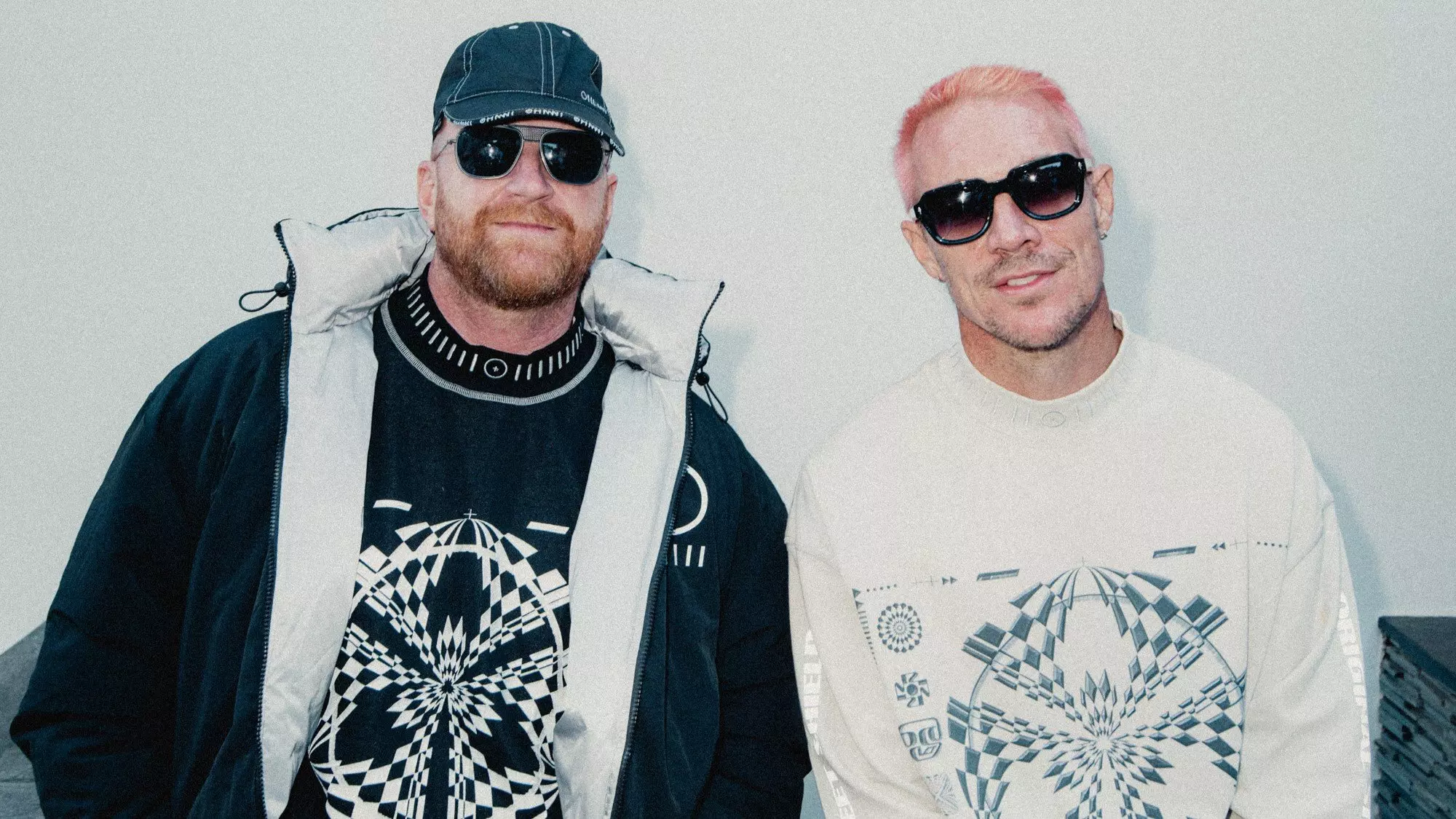
How Major Lazer's 'Guns Don't Kill People…Lazers Do' Brought Dancehall To The Global Dance Floor

YOASOBI Performs "Idol" | Global Spin
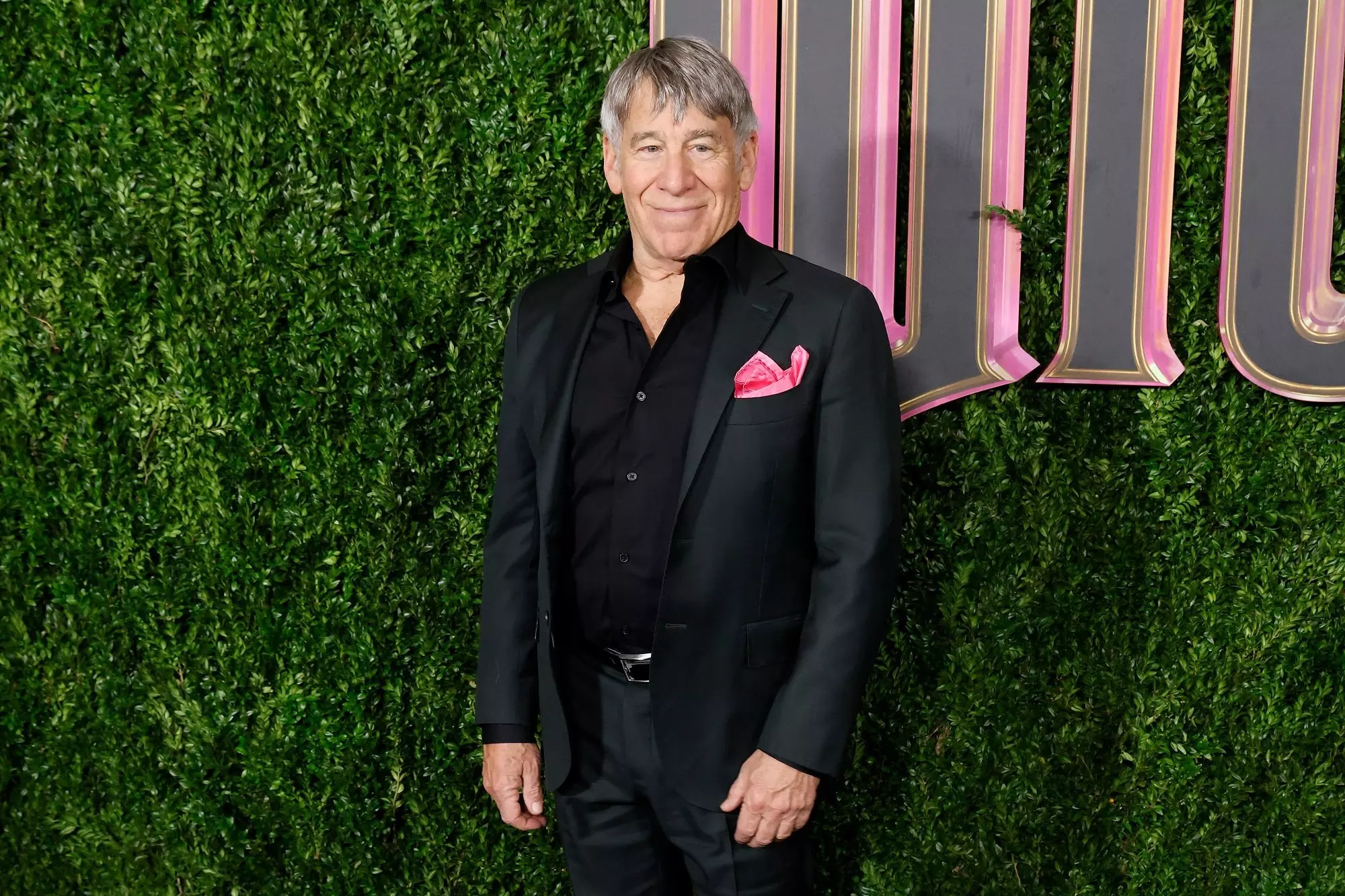
'Wicked' Composer Stephen Schwartz Details His Journey Down The Yellow Brick Road
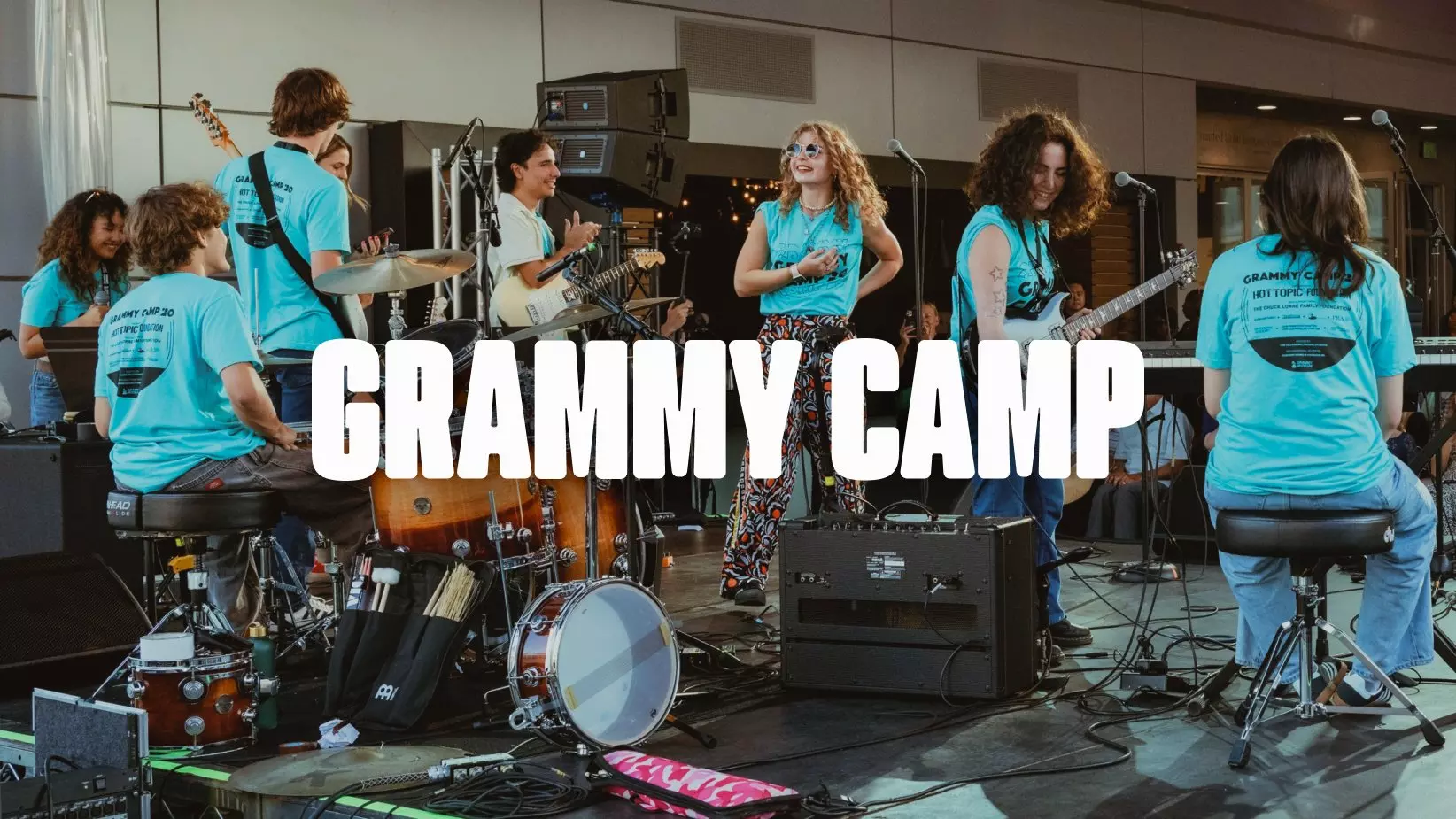
GRAMMY Museum Expands GRAMMY Camp To New York & Miami For Summer 2025
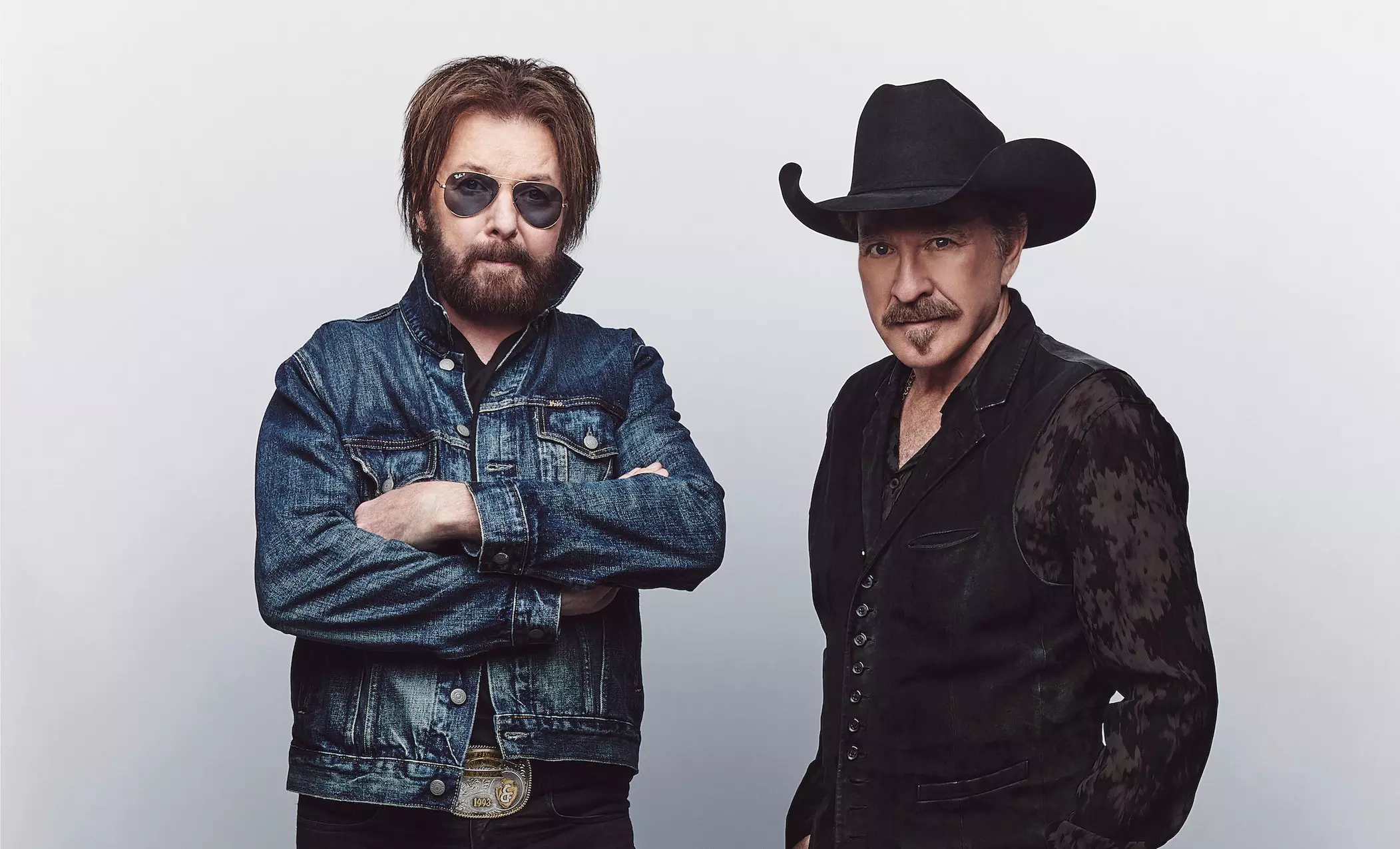
Living Legends: Brooks & Dunn On How 'Reboot II' Is A Continuation Of "Winging It From Day One"
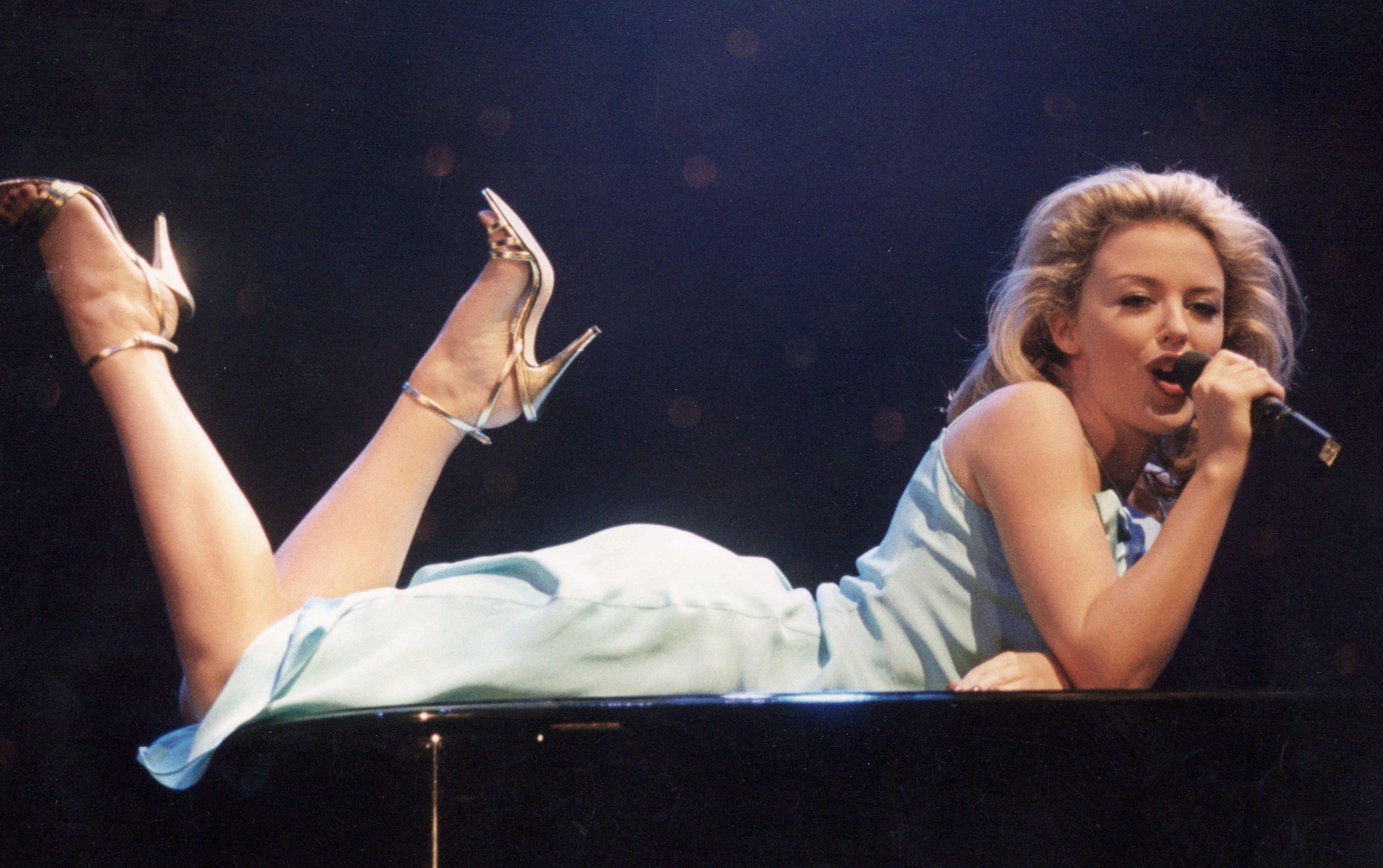
Photo: Dave Benett/Getty Images
list
Creative Control On The Dance Floor: How 'Kylie Minogue' Transformed The Singer Into A Brash Bombshell
As the eponymous album turns 30 this month, 'Kylie Minogue' remains a defiant and daring project. Minogue sought sophistication and artistic autonomy — and irrevocably changed the trajectory of her career in the process.
Kylie Minogue is sometimes overlooked when sizing up the Australian pop icon's discography. But her fifth studio record, which was released on Sept. 19, 1994, remains a transformative and daring entry that jumpstarted a new phase of Minogue’s career.
Minogue’s self-titled album sought to relaunch her as an elevated and experimental artist. Gone was her "girl next door" image; Kylie Minogue showcased the singer/musician challenging herself creatively and complicating her public presentation. Decades on, the hypnotic resonance of "Confide in Me" and the sensual excess of "Put Yourself in My Place" remain a powerful contrast to the sugary music of her early career.
Kylie Minogue was still a deliberate and memorable moment in which the singer took complete charge of her creative direction. In 1992, and after four albums and a greatest hits record, Minogue dramatically parted ways with Pete Waterman Entertainment (PWL) and signed on with independent music company, Deconstruction. "I was aware that it was being perceived as a bit of a radical move, which I loved," Minogue previously told The Guardian. Deconstruction was an indie outlet known for producing electronic and house records, a genre Minogue would soon embrace herself with Kylie Mingoue.
The gamble going rogue and wrestling artistic control back would quickly pay off. Where 1991's Let's Get to It stalled at No. 15 on UK charts, Kylie Minogue scaled the UK and Australian charts to No. 4 and No. 3 respectively, going gold in both regions and impressing music critics. One critic wrote: "So here it is, the one that's supposed to transform Kylie once and for all from pop kitten to credible artiste. This Herculean goal has actually been realized with a great deal of aplomb … it will come as no less than a revelation." Another gave this glowing assessment: "Kylie's self-titled new release is by far the best thing she has ever done."
The self-titled instalment stands as a blueprint for how Minogue would experiment with her aesthetic, artistic and musical approaches for the rest of her career. Kylie Minogue was also the beginning of a career-long flirtation with electronic and house genres — continued on her next album, Impossible Princess, to her latest, Tension — while taking innovative and ambitious artistic leaps with her image as a musician.
Adding "Minogue" to the album’s name (in a nod to her first album, Kylie) may have been a small gesture but belied a major public statement: gone was the ingenuous young woman, now beckoned the inventive and independent pop star ready to surprise us all.
In honor of Kylie Minogue’s 30th anniversary, here's a look at how the singer radically broke with her past image, wielded full creative control over her music and silenced skeptics by proving she could actually sing.
It Showed Minogue Taking Creative Control
Kylie Minogue began her career as a manufactured teen star. From her launch on the Australia soap opera "Neighbours" to her first hit, "I Should Be So Lucky" and first two albums, Kylie and Enjoy Yourself, Minogue was known for catchy bubblegum pop. But within a few years, her music became formulaic releases pumped out by British production house PWL (aptly known as "The Hit Factory"). Her 1990 song "Better the Devil You Know" featured some overt (and controversial) sexuality, though it largely stuck close to her familiar dance-pop format approved by her record label.
By 1994, Minogue "had two choices: to record pop songs that would sell, or to experiment, let me loose in a field and see what happens," Minogue told Deconstruction. The resulting Kylie Minogue made a statement: Minogue was reclaiming her artistry and pop star profile.
By abandoning PWL and approaching artists like Brothers in Rhythm and M People to help produce her record, Minogue — only about 24 — imbued her self-titled album with more adult imagery and a breadth of genres: dance, deep house, R&B, and even acid jazz.
This newfound freedom is best reflected on "Confide in Me," one of Minogue’s most unique releases thanks to its hookiness, orchestral excess and seductive lyrics musing on love and fame. The song offered an enticing blend of Middle Eastern strings and slower trip-hop beats for an intimate, if not unfamiliar, listening experience. Minogue would continue to showcase herself as a cool, confident and sexualized woman for the remainder of her career.
It Started Minogue’s Love Affair With Electronic Music
"Padam Padam" might have been the standout smash hit from 2023’s Tension, but the album also has several strong electronic and house tracks. Minogue's interest in those genres traces back over 30 years, and her experiments with dance music are deeply connected to Kylie Minogue. Her new label, Deconstruction, was known for its house anthems (like "Rhythm Is a Mystery" by K-Klass) while producers Brothers in Rhythm helped galvanize her predilection for the genre. The British electronic trio were making waves on the UK club scene, and pushed Minogue deeper into this space.
Kylie Minogue saw the singer step away from the frothy disco and pop work she had built her career on, and commit more fully to the sonic pleasures of the club scene. Album tracks "Where Has the Love Gone" and "Time Will Pass You By" are playful and uplifting, emblematic of the playfully upbeat house and feel-good messages that would characterize Minogue’s later output.
The breathy and erotic "Where is the Feeling" was recorded twice. The album version embraced the tenets of "handbag house" with its uplifting chord progressions, disco sound and Minogue's soaring and soulful voice. The single version, by contrast, had a psychedelic trip-hop and ambient sound with demonstrated vulnerability. (Minogue later released an extended cut with confessional lyrics: "So why do I still feel this way?/ Detached and vulnerable/ The world on my shoulders/ Left alone to face the unknown.")
The album also let Minogue nod to the classic house music format of 12-inch singles. Songs like "Where Has the Love Gone" and "Falling " each ran close to seven minutes a piece, offering extended dance floor pleasures. Minogue has since continued this approach of longer dance-floor releases with extended cuts of Disco and Extension (The Extended Mixes) for Tension.
Further establishing her as a leading figure in the electronic/dance music world, Minogue would go on to win the inaugural GRAMMY Award for Best Pop Dance Recording for "Padam Padam" at the 2024 GRAMMYs.
Read More: Kylie Minogue On The Freedom Behind ‘Tension,’ Being A Gay Icon & "Padam Padam"
It Showed The Minogue Was A Serious Vocalist
Minogue was sometimes criticized for having tinny vocals and a weak range, but Kylie Minogue allowed the singer to flaunt her vocal prowess away from the strictures of the Hit Factory. "[H]er voice has been coaxed from a squeak to a more resonant entity," The Guardian’s music critic wrote.
Kylie Minogue proved to be her most vocally accomplished exercise, and a far cry from her earlier teeny-bopper output. "It was the first time I had sung like that," Minogue told the Guardian of tracks like "Confide in Me." Not only could Minogue hold a note, but she indulged in diverse vocal effects.
Case in point: the uptempo ballad "Put Yourself in My Place." Minogue's vocal maturity and strength are on display as she sings about suffering through a one-sided split. Minogue's emotive vocals show mastery of the elusive pop ballad, while the song's soft and seductive melody embody the pains of a failed romance.
"Automatic Love" is also a vocal triumph. A smooth and sensuous ballad, the song features a cascading sonic arc that ends with Minogue showcasing her chops with a theatrical high note.
It Revealed Minogue Was Willing To Experiment Musically
Much like today, a global view of music and a desire to evolve was necessary to navigate the changing tastes and interests of the mid-'90s. With a coterie of edgy producers, Minogue played with unexpected genres and harmonies — like Middle Eastern instrumentation, new jack swing, R&B and even ambient sounds.
"If I Was Your Lover" may be a polarizing entry into the Minogue songbook, but it still highlights an ambition to take on the mammoth genre of R&B and the United States charts — a long allusive market for Minogue. Its rhythmic and percussive energy channels Janet Jackson, while a spoken word section (à la Madonna’s "Justify My Love") spotlights a remarkably different but developed voice for the singer.
Minogue took vocal risks on the record as well. The album captures a wide range of notes alongside whispers, murmurs and even sighs, framing Minogue as an ingenious vocalist who was broadening her sonic offerings. The intimacy afforded by these vocal gestures — such as the "s" emphasis in the spoken section of "Confide in Me" evoking a snake’s hiss — charges the songs with an erotic and hypnotic energy. The effect imbues Kylie Minogue with both a baring self-exposure and erotic intensity that listeners hadn't yet experienced previously.
It Transformed Her Image
The aesthetics that accompanied Kylie Minogue, from the iconic album cover of a barefoot Minogue crouching in a suit and spectacles, to the visuals of provocative music videos, asserted and affirmed that she was shedding her playful pop princess image and in favor of a refined, urbane and worldly one. From this release onward, Minogue would embrace her own sensuality and own her satisfaction.
Music videos for the album threaded together elevated cinematography and unique art direction, often playing with ideas of impersonality and objectification. "Confide in Me" sees the star as various "dolls" viewers can call up and seek comfort and confidence in — much like a candy machine, love is for sale. "Where Is the Feeling?" is a gritty black-and-white episode that sees Minogue swim seductively around a pool — rubbing her lips, stroking her wet hair, giving lowered gazes to the camera — while unknowingly being pursued by a man. "Put Yourself in My Place" is Barbarella redone, with Minogue taking this iconic objectified woman of pop culture but remaking it as an exposed, naked body on display in outer space.The music video sees Minogue take the Barbarella character and playfully undress in space, a figurative gesture that reminds of her rawest and most baring vocals yet.
Minogue's nuanced understanding of her public image showed that she was a new kind of pop princess: sophisticated and sensual, introspective and detached. Minogue was now comfortable exploring her womanhood and sexuality publicly, and challenging her previously girlish persona.
Much like Madonna, the 1990s saw Minogue increasingly become preoccupied with her status as a pop star, which she mined for artistic experimentation. It’s no surprise, then, that there was an accompanying photobook for Kylie Minogue, which saw the singer stand behind the camera lens and have her beauty and blondeness examined or a camp parody.
The album ultimately represented a moment for her to look from the outside in, and critically examine and challenge the image the singer was projecting publicly. Kylie Minogue stressed to both skeptics and stans that she was now abandoning the naivete of her past career to re-enter the music scene as a creative and elevated artist really to be reckoned with.




